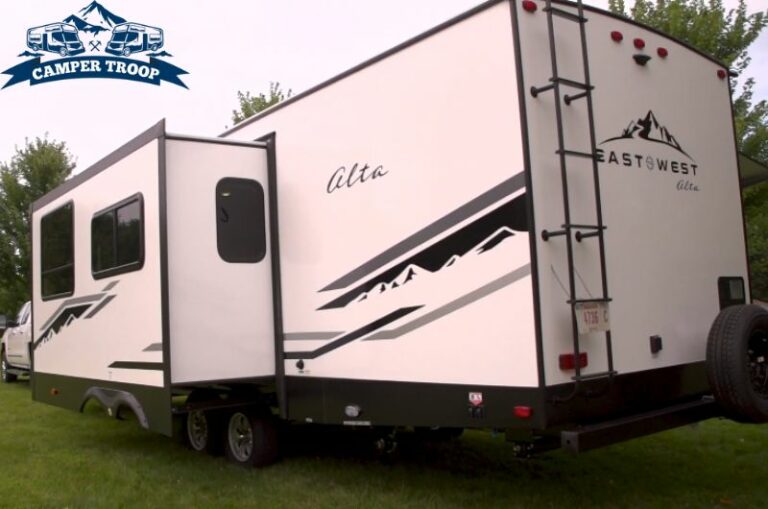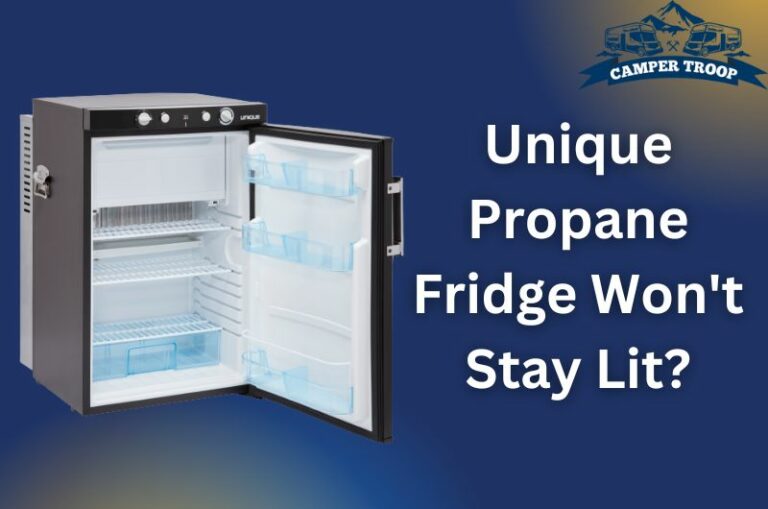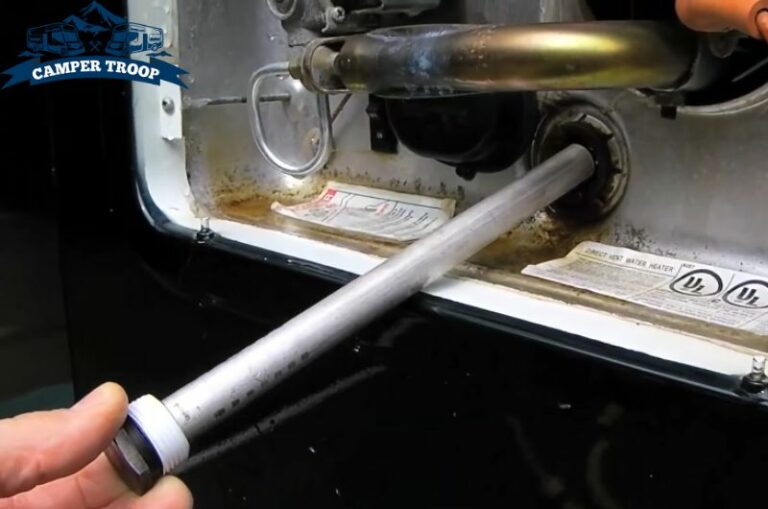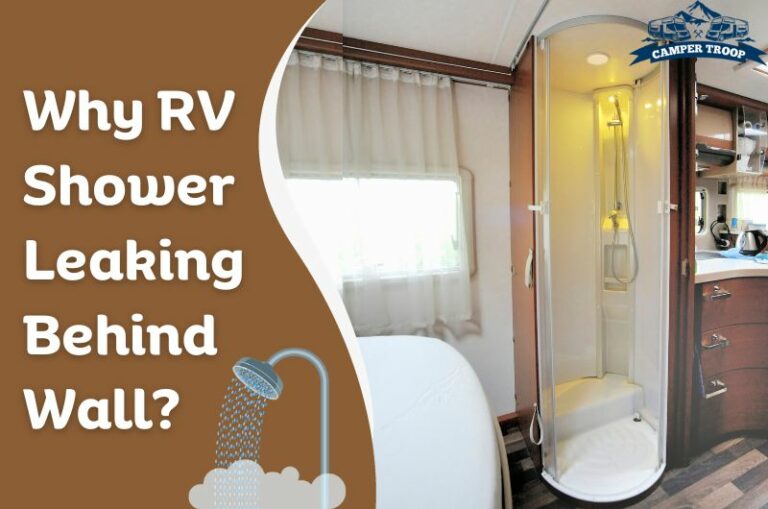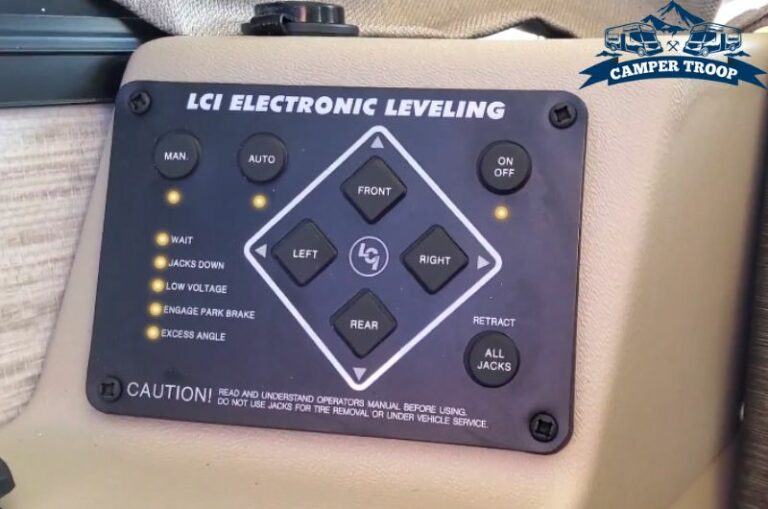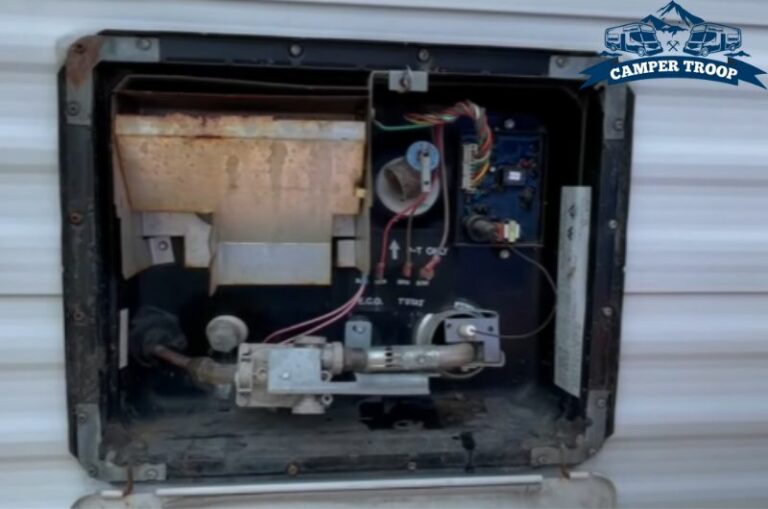Why RV Furnace Shuts off After 30 Seconds & How to Fix it?
It’s too cold outside, and someone is facing an issue with the RV Furnace as it shuts down quickly. Sounds like you? Finding the causes of the issue at first is the best thing you can do before taking any troubleshooting steps.
What are the reasons behind the RV furnace shuts off after 30 seconds? There are multiple causes of why you might face the issue. A faulty thermostat, broken igniter, defective flame sensor, clogged air filter, and low propane pressure are the most common.
The problem, however, is not that serious. If you have a good troubleshooting guide, you can fix the issue within a short time. And here we are for you to help you get rid of the frustrating problem.
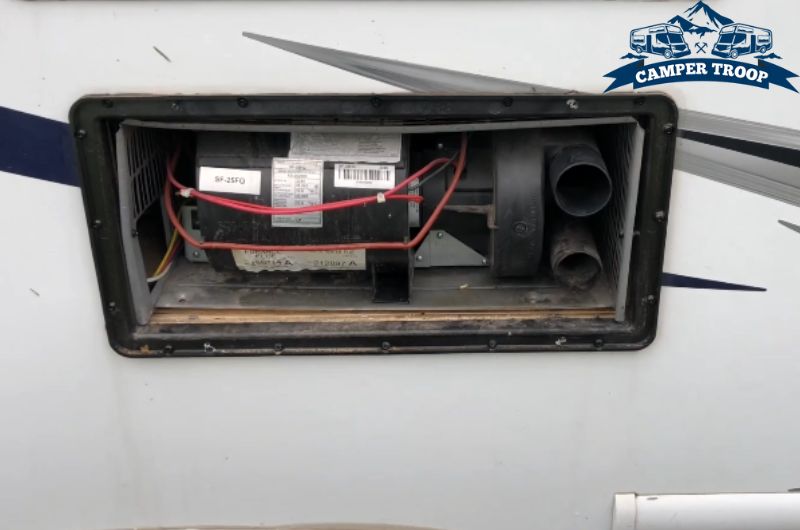
What Causes the RV Furnace to Shut Off After 30 Seconds?
As the furnace on your RV works with quite a few components, it’s nothing surprising that you won’t face any issues with this. But the truth here is that the issue needs to be fixed. In most cases, minor issues with the RV furnace might cause major ones.
1. A Faulty Thermostat
It is mandatory for the RV furnace and other heating systems that the thermostat must function correctly. Moreover, the thermostat is the primary component that lets the furnace know about the temperature by turning it on when the temperature goes down.
But, the thermostat of your RV furnace might become defective. In addition, the thermostat might get rotten as well. So, you can’t expect to see your RV furnace perform for a long time unless you fix the issue with the bad thermostat.
To identify and correct the issue, it is necessary to inspect the wiring, check the thermostat settings, and test the operation of the thermostat. If the thermostat is functioning correctly, replace it with a new one.
Read Also: Dometic RV Furnace Troubleshooting | Fix Common Problems
2. Broken Or Bad Igniter
It is unfortunate to see a broken or bad igniter on your RV furnace. If the ignitor becomes defective, there will be no propane ignition.
And thus, it results in the issue of the RV furnace shutting down too early, and there are fewer chances of having hot air inside your RV.
A bad ignitor might not be surprising for you if you have owned an RV for a long time. In most cases, cleaning the ignitor if it comes dirty will do the job for you. But, if the ignitor is severely damaged, you should replace it without having a second thought.
Moreover, a furnace’s ignitor usually lasts around 5-7 years. So, make sure you also replace it after the time period exceeds.
3. Clogged Or Damaged Flame Sensor
The flame sensor on your RV plays a decent role in determining the flame on the gas when the gas valve is open. And this is important to ensure the smooth functioning of your RV furnace.
But, if the flame sensor becomes clogged or damaged, it can’t detect the flame on the gas, resulting in frequent shutdowns of the RV furnace.
So, to get rid of this irritating issue, you first need to clean the clock flame sensor. If cleaning the same sensor works fine, you are welcome. But in most cases, if the flame sensor is extremely corroded or damaged, you must replace it.
But make sure you carefully check the sensor before doing so.
Read Also: 3 Prominent Reasons Why RV Furnace Runs with Thermostat Off
4. Lack of AirFlow
You need to make sure there is proper airflow to run the RV incomprehensibly. However, if there is a lack of airflow or low airflow, the furnace of your FV is supposed to shut down too fast. And there can be many reasons for the unexpected airflow.
In most cases, the issue of low airflow occurs due to the clogged air filter. If the air filter has been used for a long time, it is supposed to be corroded. In addition, dirty blower wheels and clogged air supply vents can cause the issue.
The solutions to these problems are pretty simple. You must clean the clogged air filter, dirty blower wheels, and clogged air supply vents. Doing this will help you out. But, if any components are damaged, you should replace them as early as possible.
Due to a clogged air filter, the sail switch of the furnace can also become dirty. As it is one of the essential components of a furnace, you should also try cleaning it to eliminate the low airflow issue.
5. Low Propane Pressure
Propane pressure cannot ignite the furnace if it is too low. The outside temperature may affect the propane pressure. It will be reduced if the weather is chilly.
Additionally, if the propane gas is used to electrical power components of your RV other than your heater, you might experience low-profile pressure issues.
Sometimes, there needs to be more propane. A dirty propane regulator can often cause the issue of low pressure as well.
To solve this issue, you must ensure that the propane tank’s gas valve is appropriately open. Also, you should refill the tank if there is a lack of propane in it. Before that, you must clean and replace the propane regulator if it needs to be in better condition.
Read Also: Why Suburban RV Furnace Won’t Light At Extreme Temperature?
How Much Does It Cost to Fix the Issue of RV Furnace Shuts Down Too Early
The cost of fixing the issue of an RV furnace shutting down too early will depend on a variety of factors. This includes the type of RV furnace, the issue’s extent, and the repair’s complexity.
Generally, the cost to diagnose and repair an RV furnace that is shutting down too early is between $100 and $500, which generally includes the cost of replacement parts, labor, and other necessary materials.
The thrilling news is that if the furnace is still under warranty, the manufacturer can cover the repairs.
Read Also: Where is Atwood Furnace Reset Switch & How to Reset?
Frequently Asked Questions
We will focus on other people’s queries about the RV furnace shutting down too early. This section will provide you with more ideas to fix the issue. So let’s check.
Can You Fix the Issue of RV Furnace Shuts Too Fast?
If you understand RV furnaces well, you can do the installation yourself. Still, you may need assistance from professionals when it comes to checking and replacing some of the machine’s components.
Where Is the Furnace Filter On Your RV?
You’ll see the furnace filter inside the blower chamber of your RV. Knowing the location of the furnace filter is essential, as you have to clean it on a regular basis to run the heating system smoothly.
When to Replace the RV Flame Sensor?
When the RV flame sensor is excessively worn out or damaged, it’s high time to replace it. Moreover, if you find a black mark on the top of the flame sensor, it indicates that it needs replacement.
How Long Does an RV Furnace Run on Propane?
It depends on what amount of propane tank you’re using. Let’s say you have 20 pounds of the propane tank. Now, with this amount of propane, you can expect to last the propane for approximately 3 hours of continuous use.
Read Also: What To Do When Rv Furnace Clicking But Not Lighting?
Final Words
If you are careful enough using the furnace on your RV, you might get rid of both major and minor issues. But, if any issue emerges, ensure you take proper steps to eradicate the issues without being too worried.
Besides, be careful before replacing any components of the furnace. Sometimes, if cleaning the parts does the work, there’s no need to replace them.
You can always hire a technician when you feel like your problem is beyond repair and you need professional help. While the RV furnace is on, you must turn off all your electronic devices to ensure a constant propane supply. This will keep the RV furnace from shutting off after 30 seconds.
Read Also: Where Is Suburban Rv Furnace Reset Button And How To Reset?

Zayan is an accomplished author and a go-to expert for all things RV and camper-related. With a passion for adventure and a knack for problem-solving, he has spent years exploring the open road and fine-tuning his knowledge of recreational vehicles.
Zayan’s writing is a testament to his expertise, offering readers practical solutions to common RV dilemmas. Whether it’s troubleshooting mechanical issues, optimizing space, or planning the perfect road trip, Zayan’s insightful advice and engaging storytelling make him an invaluable resource for both seasoned travelers and newcomers to the world of RVing.

